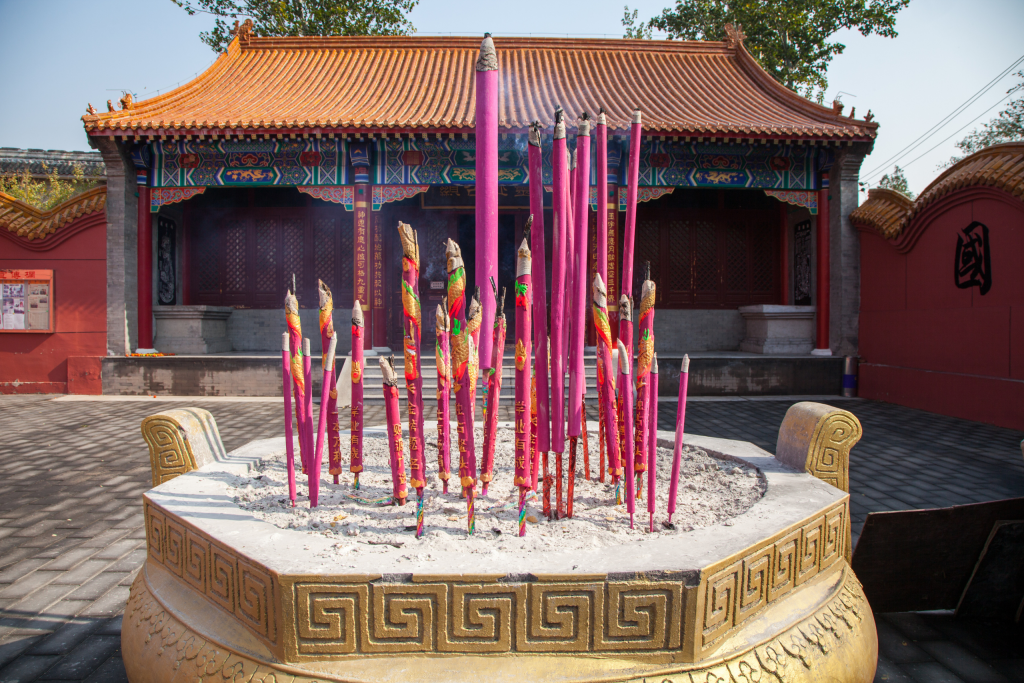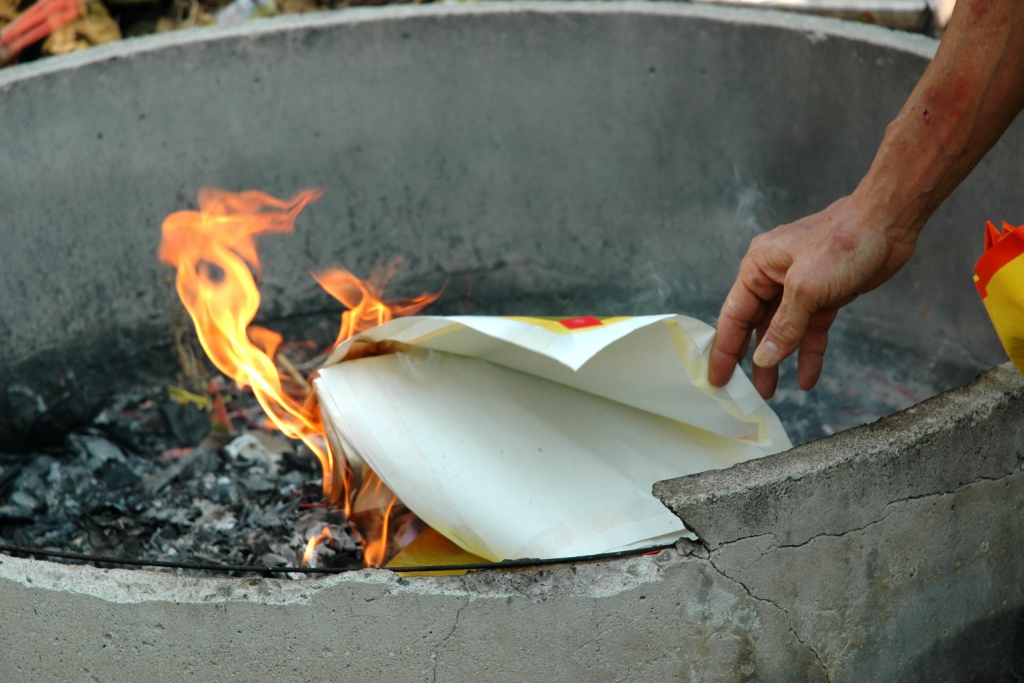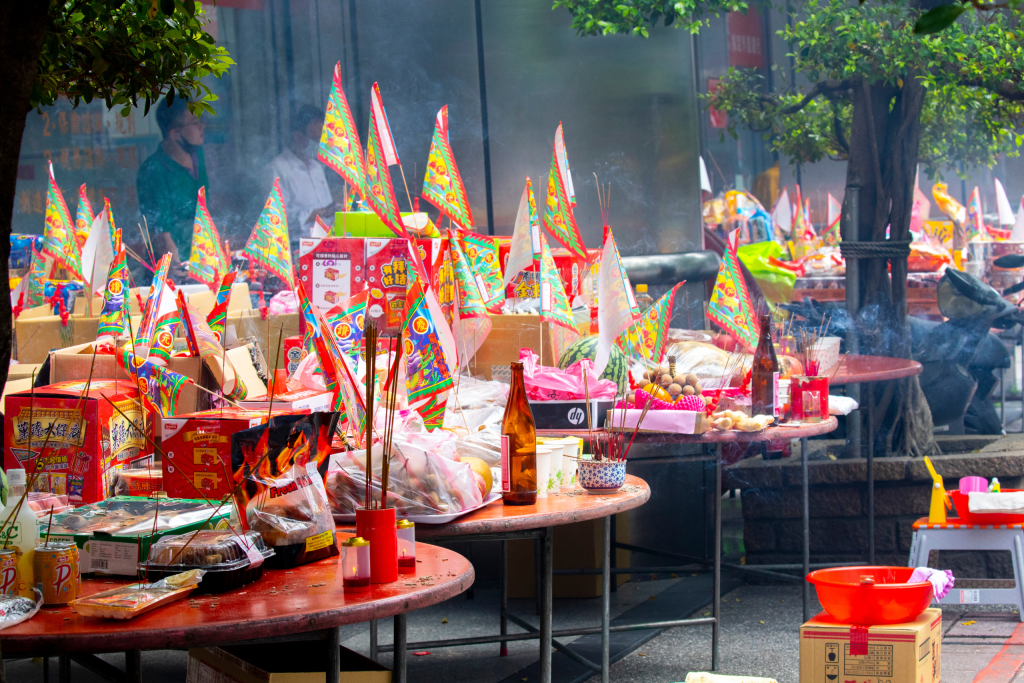Hungry Ghost Festival in Singapore: Origins, Rituals, and Cultural Traditions

With the Hungry Ghost Festival just around the corner, Singapore prepares for one of the most distinct and culturally rich observances in the Chinese calendar. Taking place in the seventh lunar month, it is a time when, according to traditional Chinese belief, the gates of the afterlife open, allowing spirits to enter the human realm. While it is often recognised for its burning offerings and getai performances, its origins and customs carry centuries of history, faith, and community values.

Historical Origins
The Hungry Ghost Festival (中元节, Zhong Yuan Jie) draws from both Taoist and Buddhist traditions. Taoism associates it with the birthday of the Earth Official (Di Guan Da Di), who forgives sins and blesses the living. In Buddhism, it connects to the story of Mulian Rescues His Mother, a tale about filial piety and compassion.
When these traditions merged, the festival became a time to honour ancestors and care for wandering spirits.

Rituals and Practices in Singapore
Burning offerings is a core aspect of rituals during the hungry ghost festival as it symbolises the transfer of goods to the spirit world. These offerings are carefully chosen based on the recipient:
- Gold Joss Paper for deities, to seek blessings and protection.
- Silver Joss Paper for wandering spirits, to appease them and ensure they do not cause mischief.
- Hell Bank Notes for ancestors, representing money sent to the afterlife.
- Paper Ingots for wealth and prosperity in the spirit world.
- Paper Clothing and Accessories to ensure the deceased are well-dressed and comfortable.
- Modern Paper Replicas such as mobile phones, watches, houses, and even cars, reflecting the belief that loved ones should enjoy modern comforts in the afterlife.
Food offerings are just as important. Common items include roast meats, rice, fruits, and sweets. Each food has symbolic meaning—such as oranges for wealth or rice for sustenance. These offerings are often placed at altars on the roadside, in front of businesses, or at homes, with incense to guide spirits to the feast.

Getai shows, unique to Singapore and Malaysia, are vibrant open-air performances in dialects like Hokkien or Cantonese. Originally staged to entertain spirits, getai today features colourful costumes, pop songs, and comedy acts, attracting large human audiences as well. Out of respect, the first rows remain empty for unseen guests.
Community altars and temple ceremonies involve collective prayers led by Taoist or Buddhist priests, reinforcing neighborhood bonds and the shared duty to honour both ancestors and wandering souls.

Common Superstitions and Taboos
Superstitions during the Hungry Ghost Festival serve as reminders to show respect to unseen visitors and avoid drawing unwanted spiritual attention:
- Avoid whistling or singing alone at night – it is believed these sounds may attract wandering spirits who follow the noise.
- Refrain from swimming – spirits of those who drowned may pull swimmers under in search of a substitute.
- Steer clear of dark, isolated places after sundown – these areas are thought to be gathering spots for spirits.
- Postpone weddings, home moves, or major business openings – the month is seen as inauspicious for new beginnings, to prevent bad luck.
- Do not pick up coins or strange objects – they may be offerings to spirits, and taking them could invite misfortune.
- Avoid pointing at the moon – superstition warns it may result in a cut on the ear, a symbolic punishment from the Moon Goddess.
- Never step on offerings or incense ashes – this is viewed as deeply disrespectful and may anger the spirits.
These practices are passed down through generations, blending spiritual caution with cultural tradition.

Cultural Significance in Modern Singapore
The festival reflects enduring values: filial piety, compassion, and community unity. Even as Singapore modernises, the scent of incense, the glow of burning paper, and the music of getai keep alive a heritage that bridges the living and the dead. The Hungry Ghost Festival is more than superstition. It is a living tradition that blends spiritual belief, cultural history, and shared values of respect, remembrance, and generosity.
